
The Enchanting Legacy of Alexandria
Alexandria, Egypt's second-largest city, offers a captivating blend of ancient history and modern vibrancy. Founded by Alexander the Great in 331 BC, this city has been a beacon of culture, knowledge, and trade for centuries. The remnants of its storied past can still be felt in its architecture, museums, and historic sites, making it a must-visit destination for history buffs and cultural enthusiasts alike. One of the city's most iconic landmarks is the Bibliotheca Alexandrina, a modern reimagining of the Great Library of Alexandria. This stunning piece of architecture houses millions of books and serves as a cultural hub, featuring art galleries, museums, and a planetarium. Wander through its halls to get a sense of Alexandria's intellectual heritage. The coastal city is also home to the beautiful Qaitbay Citadel, a 15th-century fortress built on the site of the ancient Pharos Lighthouse, one of the Seven Wonders of the Ancient World. The citadel offers breathtaking views of the Mediterranean Sea and is perfect for a leisurely stroll. For a taste of local life, head to the vibrant Corniche, a waterfront promenade lined with cafes, restaurants, and markets. Here, you can enjoy the fresh sea breeze, sample delicious Egyptian cuisine, and shop for unique souvenirs. The nearby Montaza Palace Gardens provide a lush escape, with beautifully manicured landscapes and a serene atmosphere. Alexandria's blend of ancient history and contemporary culture, combined with its stunning coastal scenery, make it a destination that promises an enriching and unforgettable experience.
Local tips in Alexandria
- Visit the Bibliotheca Alexandrina early in the morning to avoid crowds and have ample time to explore its vast collections.
- Wear comfortable walking shoes as many of Alexandria's attractions are best explored on foot.
- Try the local seafood at one of the many waterfront restaurants for a taste of Alexandria's culinary delights.
- Carry a hat and sunscreen, especially during the summer months, as the Mediterranean sun can be quite intense.
- Take a guided tour of the Qaitbay Citadel to fully appreciate its historical significance and architectural details.
Neighbourhoods in Alexandria
The Enchanting Legacy of Alexandria
Alexandria, Egypt's second-largest city, offers a captivating blend of ancient history and modern vibrancy. Founded by Alexander the Great in 331 BC, this city has been a beacon of culture, knowledge, and trade for centuries. The remnants of its storied past can still be felt in its architecture, museums, and historic sites, making it a must-visit destination for history buffs and cultural enthusiasts alike. One of the city's most iconic landmarks is the Bibliotheca Alexandrina, a modern reimagining of the Great Library of Alexandria. This stunning piece of architecture houses millions of books and serves as a cultural hub, featuring art galleries, museums, and a planetarium. Wander through its halls to get a sense of Alexandria's intellectual heritage. The coastal city is also home to the beautiful Qaitbay Citadel, a 15th-century fortress built on the site of the ancient Pharos Lighthouse, one of the Seven Wonders of the Ancient World. The citadel offers breathtaking views of the Mediterranean Sea and is perfect for a leisurely stroll. For a taste of local life, head to the vibrant Corniche, a waterfront promenade lined with cafes, restaurants, and markets. Here, you can enjoy the fresh sea breeze, sample delicious Egyptian cuisine, and shop for unique souvenirs. The nearby Montaza Palace Gardens provide a lush escape, with beautifully manicured landscapes and a serene atmosphere. Alexandria's blend of ancient history and contemporary culture, combined with its stunning coastal scenery, make it a destination that promises an enriching and unforgettable experience.
When is the best time to go to Alexandria?
Iconic landmarks you can’t miss
Montaza Palace
Explore Montaza Palace in Alexandria: A royal landmark with stunning architecture, lush gardens, and captivating Mediterranean views. A must-see!
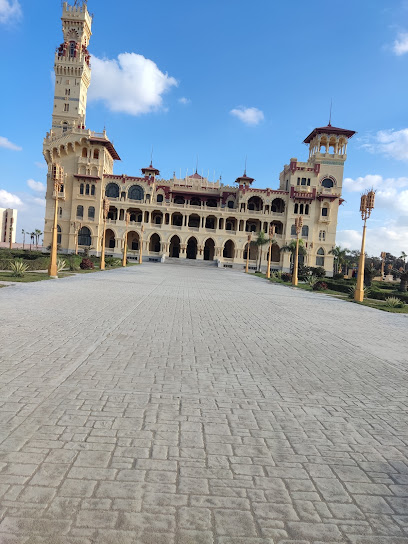
Alexandria Naval Unknown Soldier Memorial
A solemn tribute to Egypt's naval heroes, honoring their courage and sacrifice on Alexandria's picturesque Corniche.
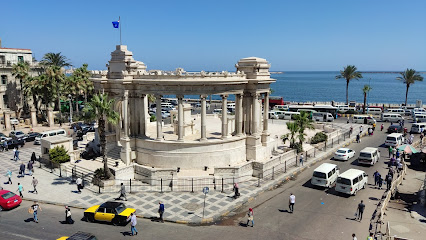
El Mamurah Beach
Discover relaxation and adventure at Alexandria's El Mamurah Beach, a family-friendly destination with golden sands and clear turquoise waters.
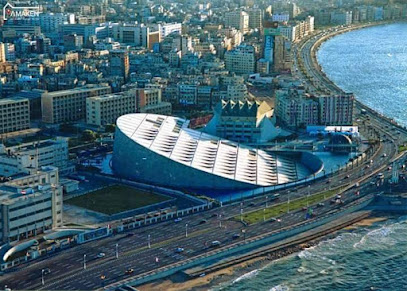
Royal Jewelry Museum, Alexandria
Discover dazzling jewels & artifacts of Egypt's royal family at the Royal Jewelry Museum in Alexandria. A glimpse into a world of opulence and history.
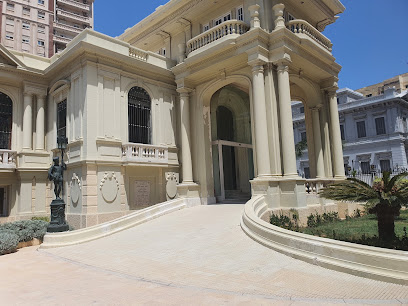
Serapeum of Alexandria
Explore the ruins of the Serapeum of Alexandria, an ancient temple and center of learning, marked by Pompey's Pillar.
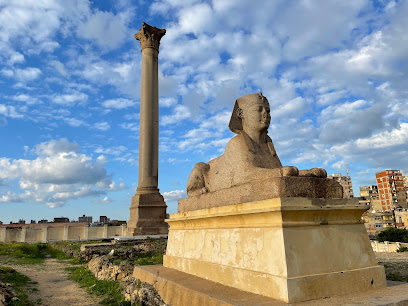
Alexandria Stadium
Step into history at Alexandria Stadium, the oldest stadium in Egypt and Africa, where sports and culture unite.
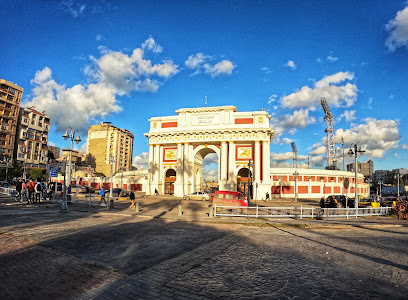
Ancient Roman Theater, Alexandria
Explore Alexandria's Ancient Roman Theater: A journey through time in Egypt's historical landmark.
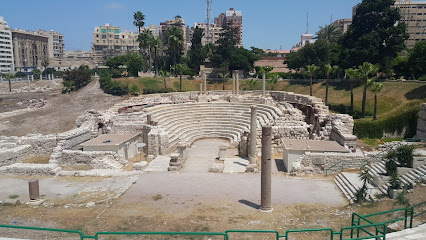
Catacombs of Kom el Shoqafa
Explore the Catacombs of Kom el Shoqafa in Alexandria, a unique blend of Egyptian, Greek, and Roman burial traditions and artistry.
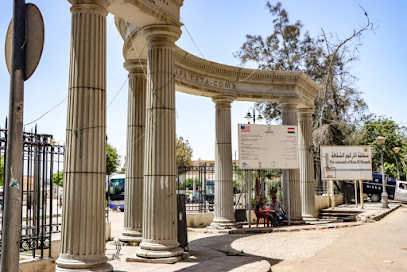
Al Shalalat Park
Discover tranquility in Alexandria's historic Al Shalalat Park, a green escape with lush gardens and ancient ruins.
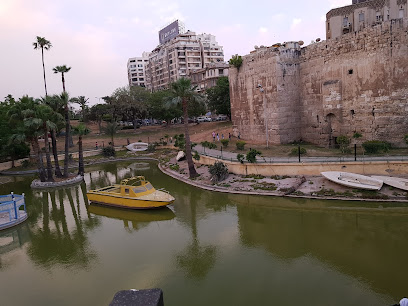
Al Qaaed Ibrahim Basha Mosque
Discover the architectural splendor and historical significance of Alexandria's iconic Al Qaaed Ibrahim Basha Mosque.
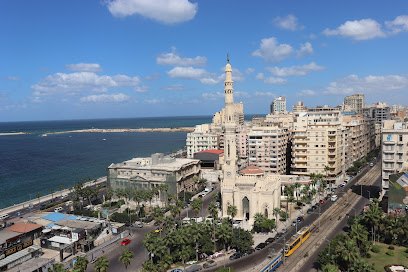
Mohamed Ali Pasha Statue
Discover the majestic Mohamed Ali Pasha Statue in Alexandria, a tribute to Egypt's modern founder amidst a vibrant historical setting.
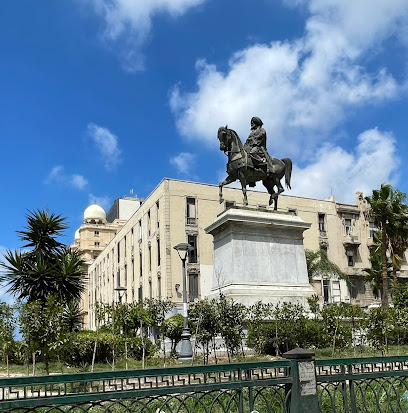
Paradise Inn - Windsor Palace Hotel
Experience timeless elegance and modern luxury at Alexandria's historic waterfront hotel, steps from iconic landmarks and cultural attractions.
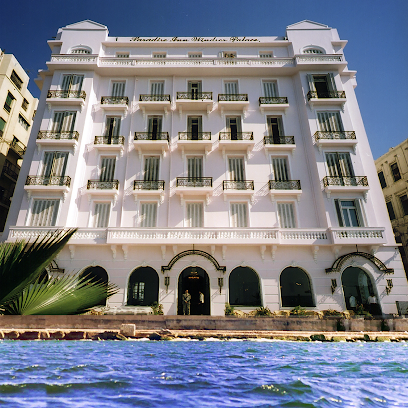
Sidi Morsi Abu al-Abbas Mosque
Discover the spiritual and architectural grandeur of Alexandria's Sidi Morsi Abu al-Abbas Mosque, a tribute to Sufi heritage.
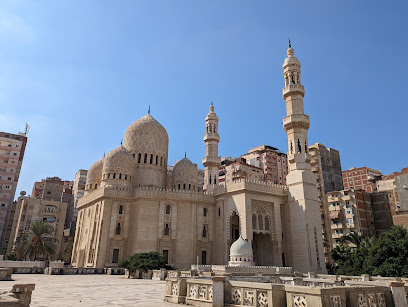
St. Mark's Cathedral in Alexandria
Discover Alexandria's spiritual heart at St. Mark's Cathedral, a historic landmark of Coptic Orthodox Christianity and faith since AD 42.
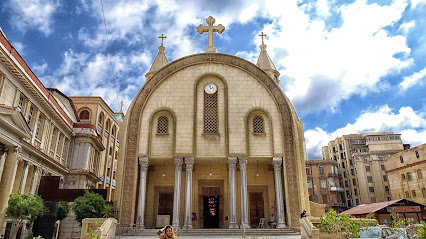
Alexandria National Museum
Discover 7000 years of Egyptian history in a stunning Italian-style palace in the heart of Alexandria.
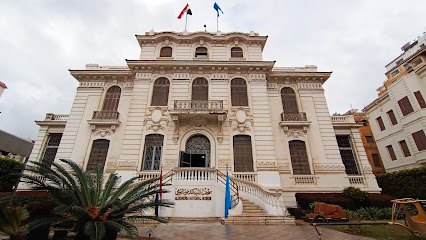
Unmissable attractions to see
Montaza Palace
Explore the stunning Montaza Palace in Alexandria, Egypt: a blend of royal history, breathtaking gardens, and Mediterranean views.
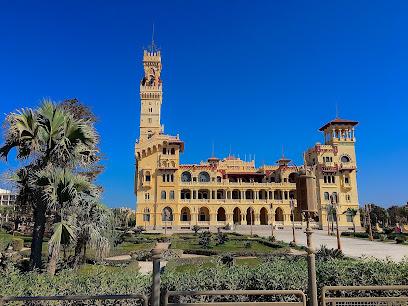
Alexandria Bibliotheca
Discover the Alexandria Bibliotheca, a cultural hub that bridges ancient wisdom with modern exploration in the heart of Egypt's historic city.
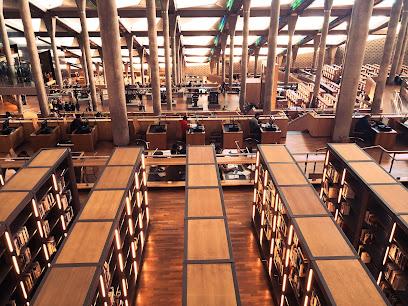
Royal Jewelry Museum, Alexandria
Explore the Royal Jewelry Museum in Alexandria, where history and artistry converge to showcase Egypt's regal treasures in a stunning palace setting.
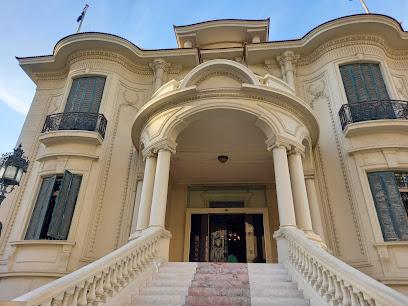
Serapeum of Alexandria
Discover the grandeur of Pompey's Pillar, a monumental testament to Alexandria's ancient heritage and Roman engineering marvel.
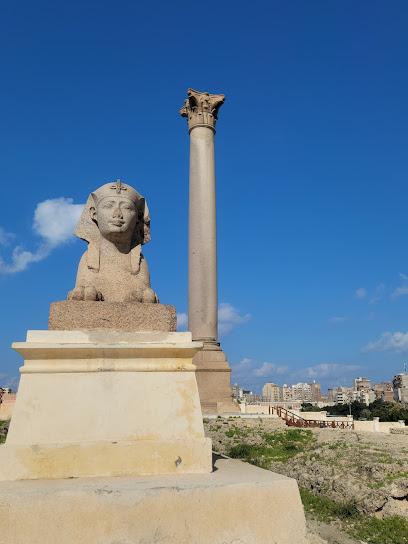
Monastery of Saint Mina
Discover the tranquil beauty and rich heritage of the Monastery of Saint Mina, a Coptic Christian sanctuary in Borg El Arab, Egypt.
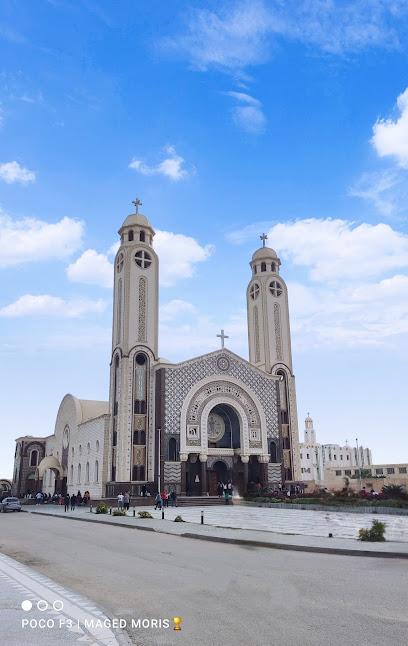
Ancient Roman Theater, Alexandria
Discover the Ancient Roman Theater in Alexandria, a historical landmark that showcases the architectural brilliance of the Roman Empire amidst modern vibrancy.
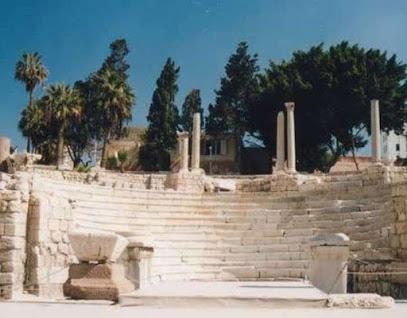
Catacombs of Kom el Shoqafa
Uncover the captivating blend of cultures at the Catacombs of Kom el Shoqafa, a historical gem in Alexandria's rich tapestry.
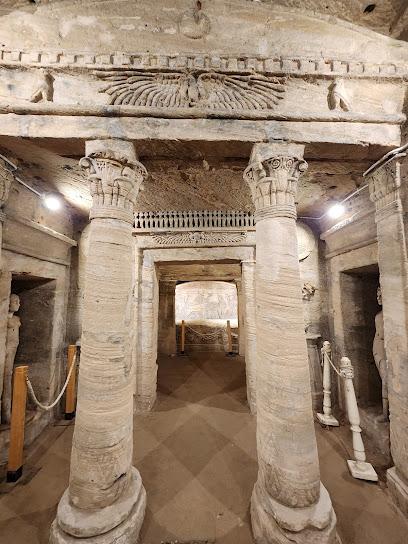
Al Shalalat Park
Discover tranquility at Al Shalalat Park in Alexandria, where lush gardens and serene waters create a perfect escape from the city hustle.
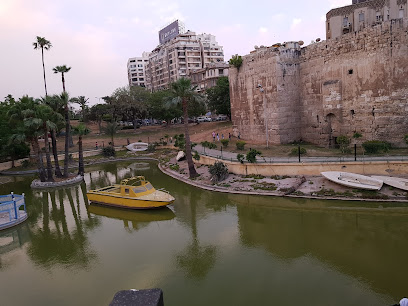
Antoniades Gardens
Discover the lush beauty of Antoniades Gardens, a tranquil botanical oasis in Alexandria perfect for relaxation and exploration.
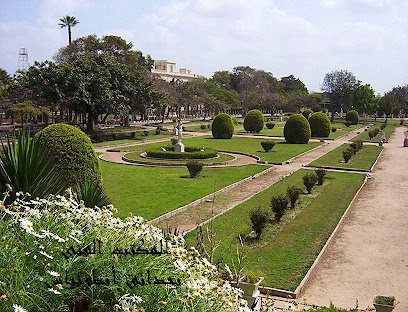
Alexandria Aquarium
Explore the vibrant marine life at Alexandria Aquarium, a captivating blend of education and entertainment in the heart of Egypt's historic city.
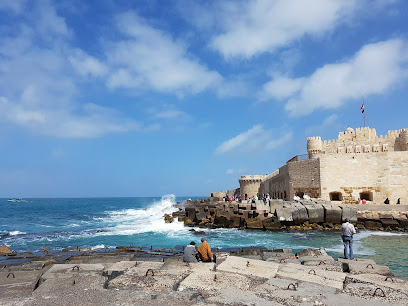
Greco-Roman Museum
Explore Alexandria's rich heritage at the Greco-Roman Museum, where centuries of history come alive through captivating artifacts and exhibits.
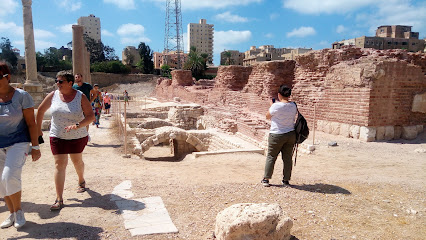
Qaitbay Citadel
Experience the rich history of Alexandria at Qaitbay Citadel, a magnificent fortress overlooking the Mediterranean, blending culture and breathtaking views.
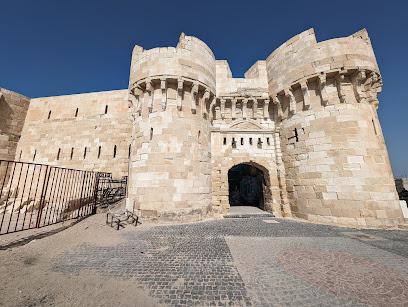
International park Alexandria
Explore the lush landscapes and tranquil pathways of International Park Alexandria, a perfect retreat amidst the vibrant culture of Egypt's historic city.
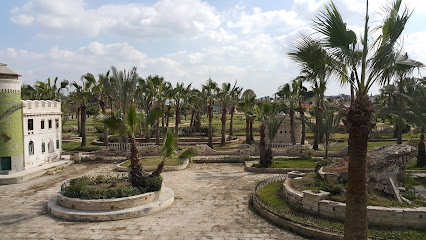
Corniche
Experience the charm of Alexandria's Corniche, a stunning waterfront promenade perfect for leisurely strolls and breathtaking Mediterranean views.
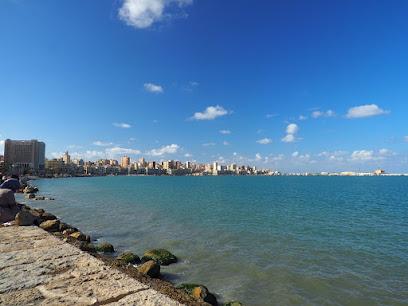
Cavafy Museum
Explore the life and legacy of Constantine P. Cavafy at the intimate Cavafy Museum in Alexandria, a must-visit for literature lovers and history enthusiasts.
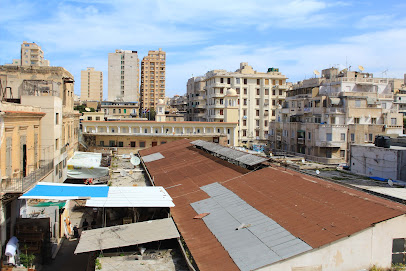
Essential places to dine
Latino Cafe & Resturant
Discover the rich flavors of Latin cuisine at Latino Cafe & Restaurant in Alexandria - perfect for breakfast or lunch!
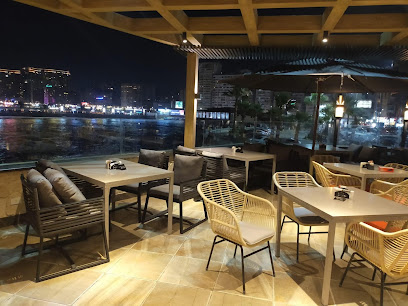
Ibn Hamido
Experience fresh seafood delights at Ibn Hamido in Alexandria – where flavor meets breathtaking Mediterranean views.
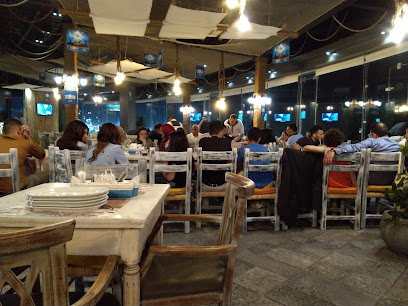
Zephyrion restaurant , Abu Qir, Alexandria
Experience exquisite seafood dining at Zephyrion Restaurant in Abu Qir, Alexandria—where fresh flavors meet breathtaking Mediterranean views.
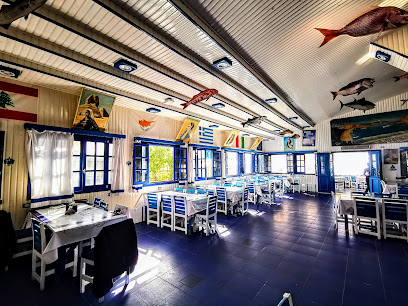
Chez Gaby Au Ritrovo
Experience authentic Italian cuisine at Chez Gaby Au Ritrovo in Alexandria—delicious food in a cozy atmosphere awaits you.
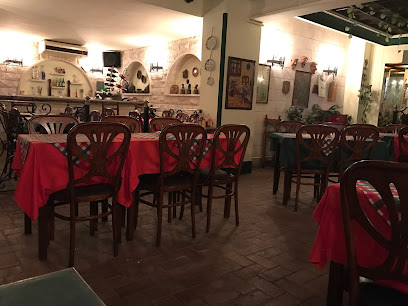
Malek El Semman
Experience authentic Egyptian cuisine at Malek El Semman, renowned for its flavorful quails and vibrant atmosphere in Alexandria.
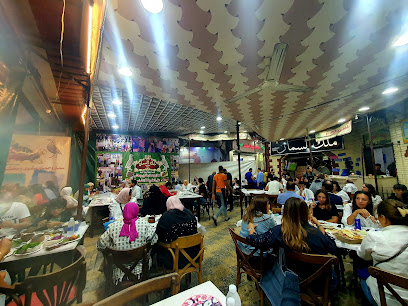
White & Blue - Greek Nautical Club
Experience authentic Greek seafood with stunning views at White & Blue - Greek Nautical Club in Alexandria.
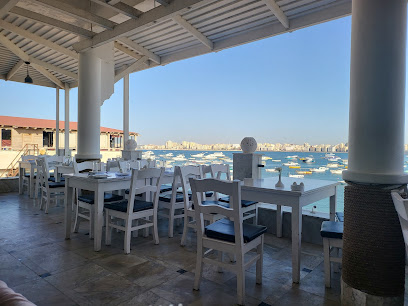
Calithea
Experience authentic Japanese Izakaya culture at Calithea in Alexandria - where flavor meets tradition in every dish.
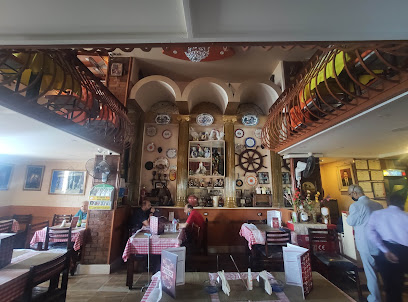
Coffee Roastery
Experience the rich flavors and cozy ambiance at Alexandria's premier breakfast destination, Coffee Roastery.
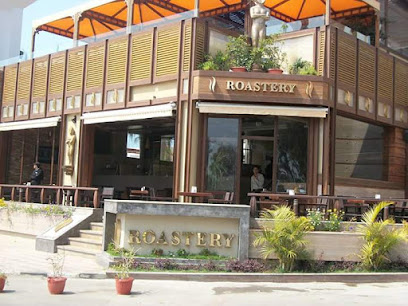
Lebanero Resturant &cafe
Discover authentic Lebanese flavors at Lebanero Restaurant & Cafe in Alexandria's vibrant Fleming district.
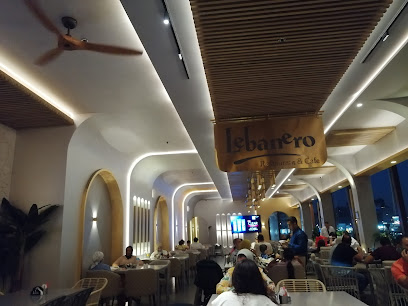
Basilico
Experience authentic Italian cuisine at Basilico in Alexandria—where every dish tells a story of tradition and flavor.
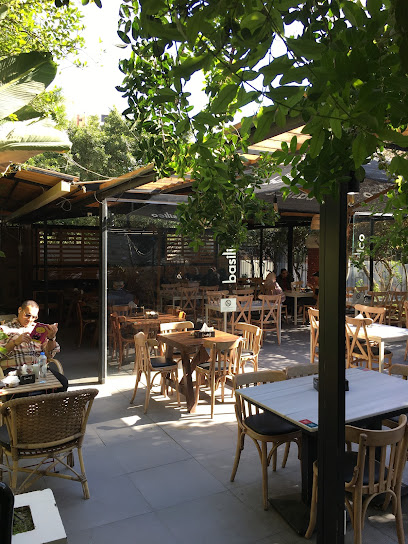
Teatro Eskendria
Discover Teatro Eskendria: where authentic Egyptian flavors meet international cuisine in the heart of Alexandria.
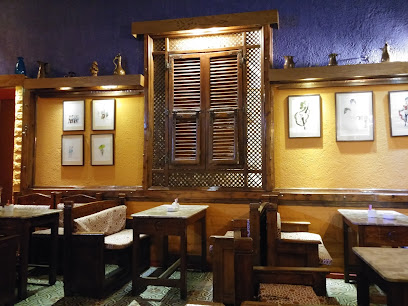
Jeeda's
Discover the vibrant flavors of Mediterranean cuisine at Jeeda's in Alexandria – where culinary traditions meet modern tastes.
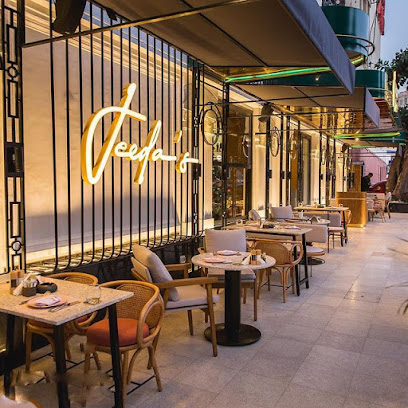
old street cafe and restaurant
Experience authentic Egyptian cuisine at Old Street Café & Restaurant in Alexandria - where tradition meets flavor in a cozy setting.
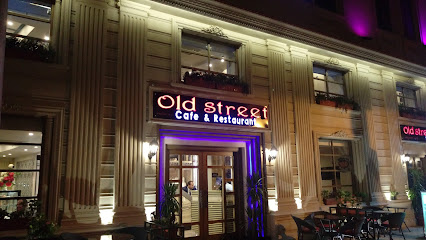
Crave
Experience exquisite dining at Crave, where traditional Egyptian flavors meet modern culinary excellence along Alexandria's stunning waterfront.
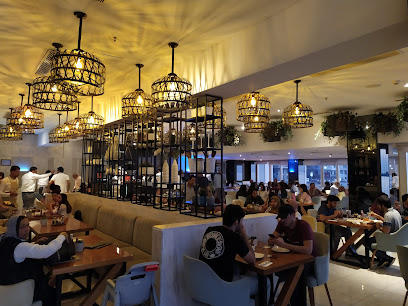
Opium
Discover the flavors of Alexandria at Opium, where exquisite cuisine meets a cozy café atmosphere in the heart of the city.
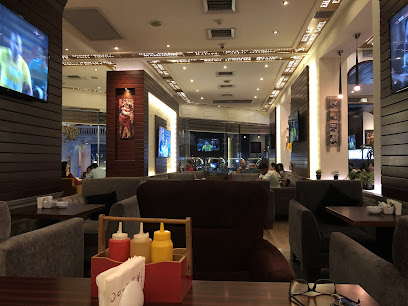
Markets, malls and hidden boutiques
Carrefour - City Centre Alexandria
Explore Carrefour at City Centre Alexandria for an unparalleled shopping experience blending local culture and modern convenience.
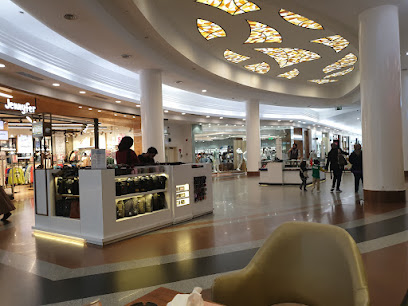
City Centre Alexandria
Explore City Centre Alexandria: A shopping paradise with diverse stores, dining, and entertainment options in the heart of Alexandria.
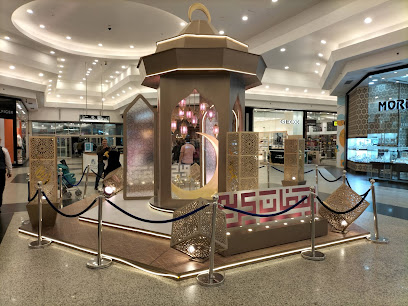
San Stefano Grand Plaza
Explore the vibrant San Stefano Grand Plaza in Alexandria, a premier destination for shopping, dining, and entertainment in Egypt.
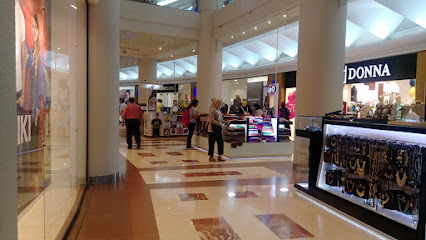
Green Plaza Mall
Discover the ultimate shopping experience at Green Plaza Mall, Alexandria's bustling hub of retail, dining, and entertainment.
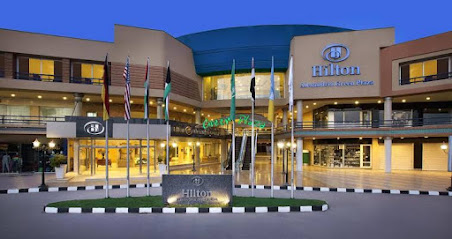
City Light Mall
Explore City Light Mall in Alexandria for a dynamic shopping experience with diverse stores and delightful dining options amidst a vibrant atmosphere.
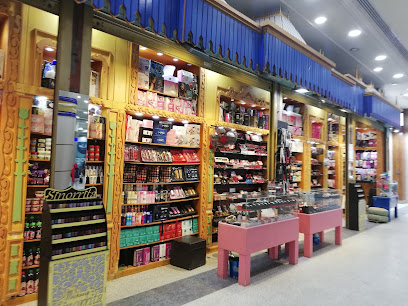
Designia Mall
Explore Alexandria's Designia Mall: A premier shopping destination offering luxury brands, diverse dining, and family-friendly entertainment.
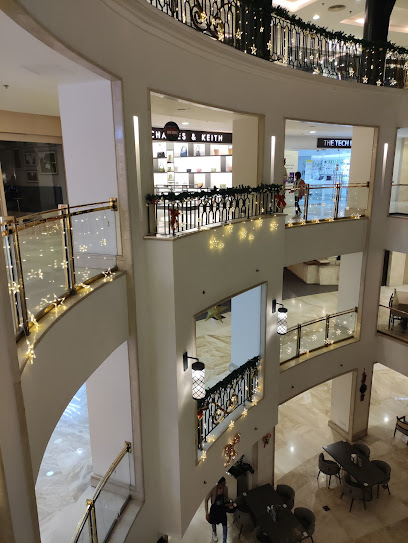
dstore
Discover the ultimate fashion experience at Dstore in Alexandria, featuring a wide range of clothing, bags, and shoes for every style and age.

TREE
Explore TREE in Alexandria for the latest in men's fashion, offering stylish clothing and a chic shopping experience in San Stefano.
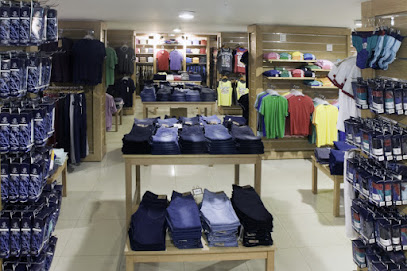
Daniel Hechter & Or Outlet
Shop designer fashion at unbeatable prices in the heart of Alexandria at Daniel Hechter & Or Outlet.
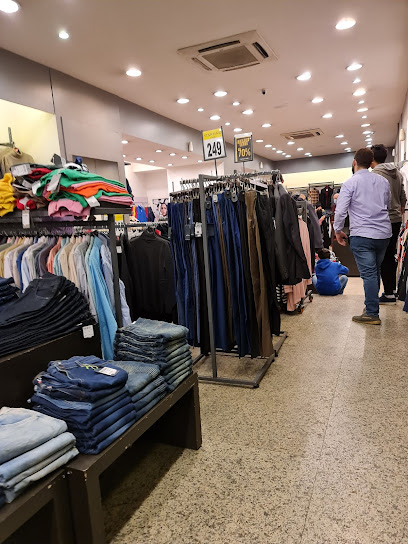
Africa Store Alexandria - افريقا ستور الاسكندرية
Explore the vibrant styles at Africa Store Alexandria, where local fashion meets unique flair in the heart of Egypt's historical city.
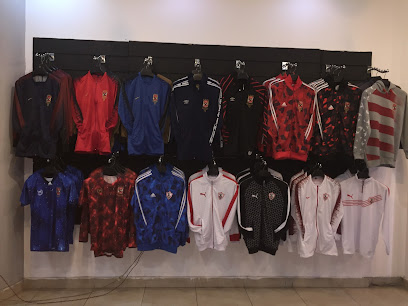
Spade giftshop
Explore Spade Giftshop in Alexandria for unique souvenirs and local crafts that capture the spirit of Egypt.
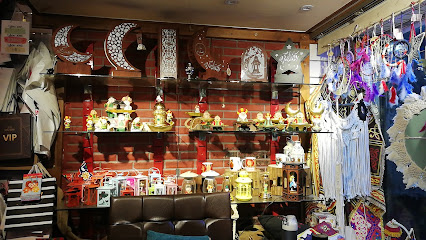
Rapo Gift Shop
Explore the enchanting Rapo Gift Shop in Alexandria for unique gifts and local crafts that embody the rich culture of Egypt.
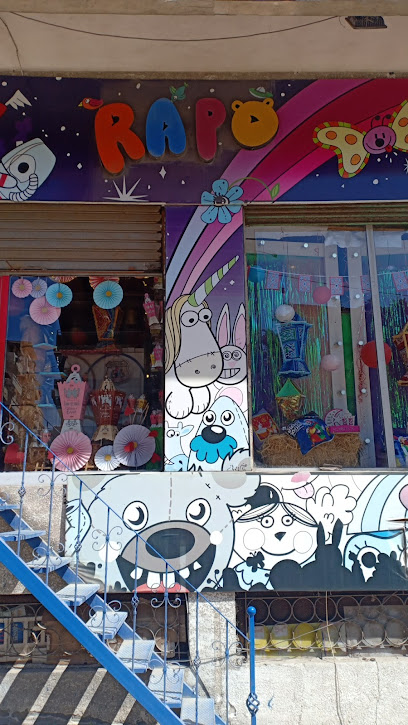
Shein Stuff
Explore the latest in women's fashion at Shein Stuff in Alexandria, offering stylish apparel and accessories in a vibrant shopping atmosphere.
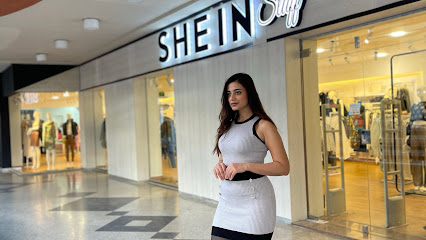
Or
Discover the latest fashion trends at Or, a premier clothing store in Alexandria, blending local style with contemporary designs for every taste.
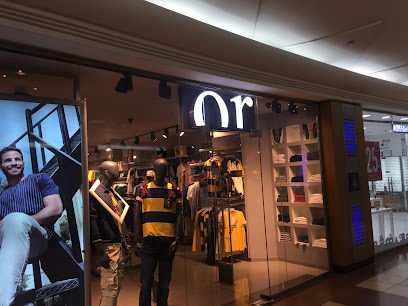
Monami Gift Shop
Explore Monami Gift Shop in Alexandria for unique gifts and local treasures that celebrate Egyptian artistry and culture.
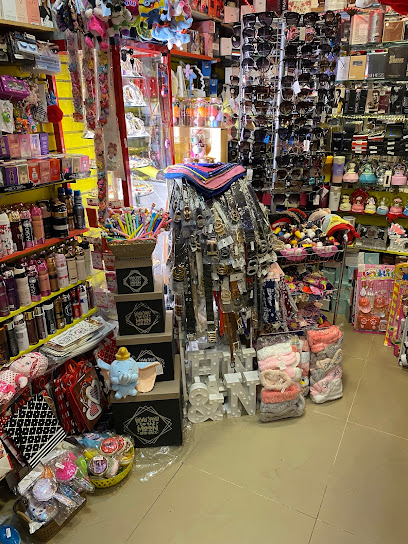
Essential bars & hidden hideouts
Skyroof - Windsor Palace Hotel
Experience luxury dining and vibrant nightlife at Skyroof, Windsor Palace Hotel, where exquisite cuisine meets stunning views in Alexandria.
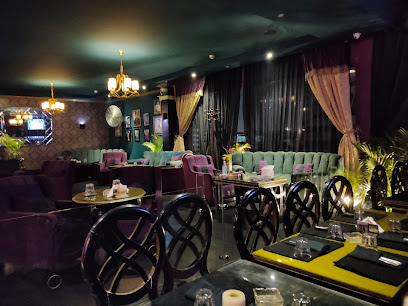
Calithea
Discover the vibrant culinary scene at Calithea, an Izakaya offering a unique blend of flavors in the heart of Alexandria, Egypt.
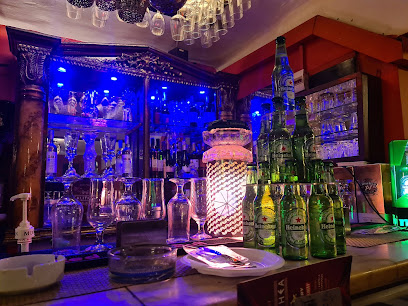
Cap D’or Bar and Restaurant
Discover the vibrant flavors and lively ambiance at Cap D’or Bar and Restaurant in Alexandria, the perfect spot for tourists seeking local cuisine.
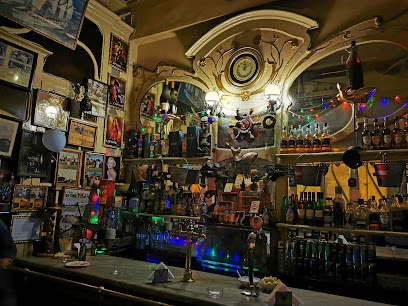
Deja Vu
Discover the best grilled dishes in Alexandria at Deja Vu, where local flavors meet a vibrant dining atmosphere.
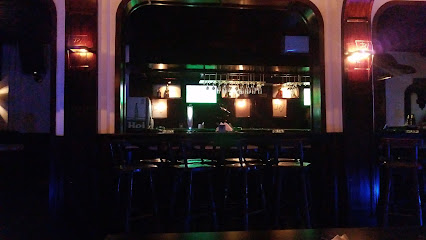
The Pint Bar
Experience the lively atmosphere and delightful drinks at The Pint Bar in Alexandria, the perfect spot for socializing and relaxation.
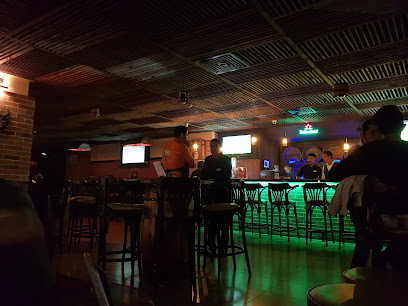
N.Y.X lounge
Discover the electric atmosphere of N.Y.X Lounge in Alexandria, where nightlife meets exceptional cuisine in a stylish setting.
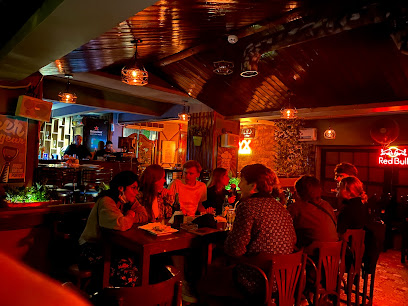
NEO Lounge Alexandria
Discover the vibrant nightlife of Alexandria at NEO Lounge, where dining meets dancing in a chic ambiance for an unforgettable evening.
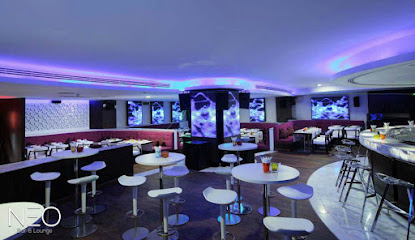
Le Bar
Experience luxury and relaxation at Le Bar, Alexandria's premier lounge and wine bar with stunning Mediterranean views and exquisite drinks.
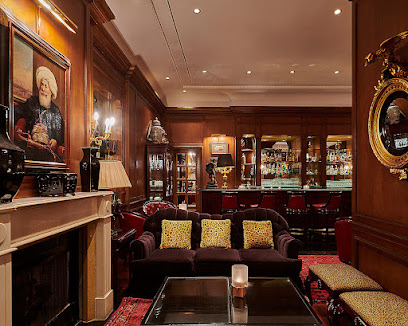
Il Punto
Experience the vibrant nightlife at Il Punto, Alexandria's trendy bar known for its stylish ambiance and delightful drinks.
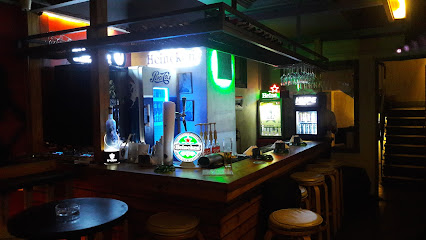
Hooliganseg
Discover Hooliganseg, Alexandria's top sports bar featuring delicious food, refreshing drinks, and a lively atmosphere perfect for sports fans and casual diners.
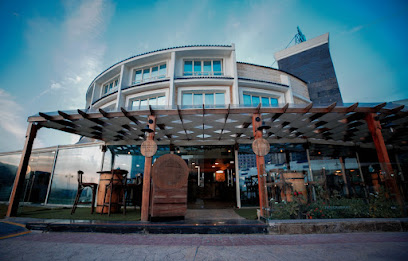
Spitfire bar
Discover the vibrant nightlife of Alexandria at Spitfire Bar, where refreshing drinks and a lively atmosphere await you.
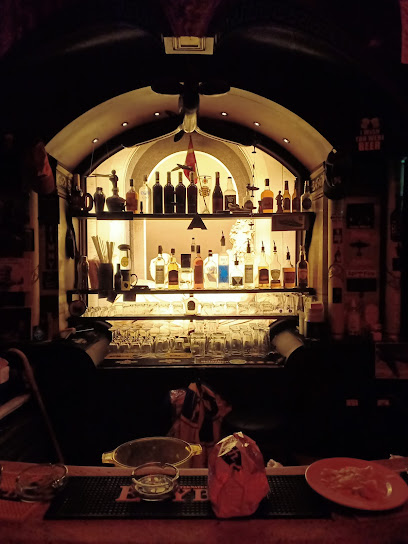
Cigar Bar
Experience the ultimate luxury at Alexandria's Cigar Bar, where fine cigars and exquisite drinks meet stunning Mediterranean views.
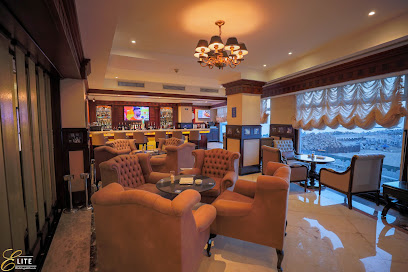
Bleu
Discover the elegance of Bleu Lounge in Alexandria, where exquisite wines and a stunning seaside view offer an unforgettable experience.
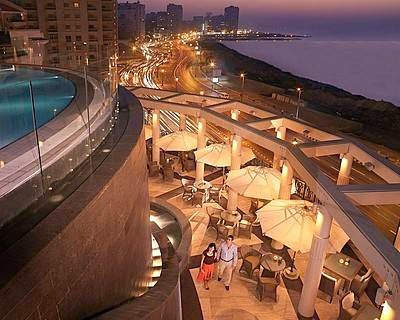
Nefertiti bar
Experience the vibrant local culture and enjoy refreshing drinks at Nefertiti Bar in Alexandria, a must-visit spot for tourists and locals alike.
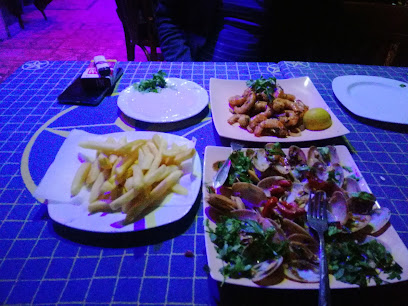
Local Phrases
-
- Helloمرحبا
[marhaba] - Goodbyeوداعا
[wada'an] - Yesنعم
[na'am] - Noلا
[la] - Please/You're welcomeمن فضلك
[min fadlak] - Thank youشكرا
[shukran] - Excuse me/Sorryعذرا
[a'dhran] - How are you?أزيك؟
[ezayak?] - Fine. And you?تمام. وأنت؟
[tamam. wa-ant?] - Do you speak English?بتتكلم إنجليزي؟
[betetkalem ingilizi?] - I don't understandمش فاهم
[mesh fahem]
- Helloمرحبا
-
- I'd like to see the menu, pleaseعايز أشوف القائمة، من فضلك
[ayiz ashuf elqa'ema, min fadlak] - I don't eat meatأنا مش بآكل لحم
[ana mesh ba'akol lahme] - Cheers!في صحتك!
[fi sahtak!] - I would like to pay, pleaseعايز أدفع، من فضلك
[ayiz adfa', min fadlak]
- I'd like to see the menu, pleaseعايز أشوف القائمة، من فضلك
-
- Help!مساعدة!
[mosa'ada!] - Go away!روح بعيد!
[ruh ba'id!] - Call the Police!اتصل بالشرطة!
[etssel baleshurta!] - Call a doctor!اتصل بطبيب!
[etssel betebib!] - I'm lostانا ضايع
[ana daye'] - I'm illانا مريض
[ana mareed]
- Help!مساعدة!
-
- I'd like to buy...عايز أشتري...
[ayiz ashtari...] - I'm just lookingأنا بس بشوف
[ana bas beshuf] - How much is it?بكام؟
[bikam?] - That's too expensiveده غالي أوي
[da ghali awe] - Can you lower the price?ممكن تنزل السعر؟
[momken tenzel elsa'er?]
- I'd like to buy...عايز أشتري...
-
- What time is it?كام الساعة؟
[kam elsa'a?] - It's one o'clockالساعة واحدة
[elsa'a wahda] - Half past (10)العاشر والنص
[ela'asher wannes] - Morningصباح
[sabah] - Afternoonبعد الظهر
[ba'd elzohor] - Eveningمساء
[masa'] - Yesterdayأمس
[ams] - Todayاليوم
[alyoum] - Tomorrowغدا
[ghadan] - 1واحد
[wahid] - 2اتنين
[etneen] - 3تلاتة
[talata] - 4أربعة
[arba'a] - 5خمسة
[khamsa] - 6ستة
[sitta] - 7سبعة
[saba'a] - 8ثمانية
[thamania] - 9تسعة
[tes'a] - 10عشرة
[ashara]
- What time is it?كام الساعة؟
-
- Where's a/the...?وين في...؟
[wein fi...?] - What's the address?إيه العنوان؟
[eh el'anoan?] - Can you show me (on the map)?تقدر توريني (على الخريطة)؟
[takdar tawrini (ala elkhareta)?] - When's the next (bus)?إمتى القادم (أتوبيس)؟
[emta el'adim (otobis)?] - A ticket (to ....)تذكرة (إلى...)
[tazkira (ila...)]
- Where's a/the...?وين في...؟
History of Alexandria
-
In 331 BC, Alexander the Great founded Alexandria, envisioning it to be the link between Greece and the rich Nile Valley. Designed by the architect Dinocrates, the city was strategically positioned on the Mediterranean coast, quickly becoming one of the most important cultural and commercial centers of the ancient world.
-
The Library of Alexandria, established during the reign of Ptolemy I Soter, became the most famous library of classical antiquity. It was an intellectual hub attracting scholars, scientists, and philosophers from all over the ancient world, including Euclid, Archimedes, and Eratosthenes. The library's destruction, often attributed to multiple events over several centuries, remains a symbol of the loss of cultural and scientific knowledge.
-
Constructed under the reign of Ptolemy II Philadelphus around 280 BC, the Pharos Lighthouse stood on the small island of Pharos. One of the Seven Wonders of the Ancient World, it was an architectural marvel designed to guide sailors safely into the busy harbor of Alexandria. The lighthouse remained functional until the 14th century, when it was heavily damaged by earthquakes.
-
Cleopatra VII, the last active ruler of the Ptolemaic Kingdom of Egypt, played a pivotal role in Alexandria's history. Her liaisons with Julius Caesar and Mark Antony, and eventual defeat by Octavian (later Augustus), led to Roman domination over Egypt in 30 BC. Alexandria then became a major center of Roman culture and economy.
-
By the 1st century AD, Alexandria had become a significant center for early Christianity. The city was home to many early Church Fathers, including Origen and Athanasius. The Catechetical School of Alexandria was one of the most influential Christian theological and philosophical institutions, contributing greatly to the development of Christian doctrine.
-
In 642 AD, Alexandria was captured by the Arab forces under the command of Amr ibn al-As, marking the beginning of Islamic rule in Egypt. The city's strategic importance continued under the new administration, becoming a key maritime and commercial hub in the expanding Islamic world.
-
In 1798, Napoleon Bonaparte's French campaign in Egypt brought Alexandria into the European consciousness once again. The Battle of Alexandria in 1801 saw British forces, allied with the Ottomans, take the city from the French. This period sparked renewed Western interest in Egyptology and the ancient heritage of Alexandria.
-
By the 19th and early 20th centuries, Alexandria had evolved into a cosmopolitan city with a diverse population, including Greeks, Italians, Jews, Armenians, and Syrians. This melting pot fostered a vibrant cultural and intellectual life, turning Alexandria into a beacon of modernity in the Mediterranean.
Alexandria Essentials
-
Alexandria is accessible via Borg El Arab International Airport, located about 40 kilometers southwest of the city. The airport handles both domestic and international flights. From Cairo, you can also take a train or a bus to Alexandria. The train journey from Cairo's Ramses Station to Alexandria's Misr Station typically takes around 2-3 hours. Buses are available from various operators and can take between 3-4 hours depending on traffic.
-
Within Alexandria, you have several transportation options including taxis, minibuses, and trams. Taxis are widely available and can be hailed on the street or booked through ride-hailing apps like Uber and Careem. Minibuses are a cheaper alternative but can be crowded. The tram system is one of the oldest in the world and is an affordable way to get around, though it can be slow. Renting a car is also an option, but driving can be chaotic for those not used to it.
-
The official currency in Egypt is the Egyptian Pound (EGP). Credit cards are accepted in many hotels, restaurants, and larger shops, but cash is preferred in smaller establishments and markets. ATMs are widely available throughout the city. It's advisable to carry small denominations of cash for convenience, especially for taxis and tips.
-
Alexandria is generally safe for tourists, but it is advisable to take standard precautions. Avoid isolated areas after dark and be cautious in crowded places to guard against pickpocketing. Areas like El Mansheya and El Attarin have higher crime rates, so be particularly cautious there. Always keep an eye on your belongings and avoid displaying valuables openly.
-
In case of an emergency, dial 122 for police, 123 for medical emergencies, and 180 for fire services. Major hospitals in Alexandria include Alexandria Main University Hospital and Mowasat Hospital. Pharmacies are widespread and usually open late. It is highly recommended to have travel insurance that covers medical emergencies.
-
Fashion: Do dress modestly, especially when visiting religious sites. Avoid wearing revealing clothing. Religion: Do respect local customs and religious practices. Remove shoes when entering mosques and avoid disruptive behavior. Public Transport: Do be polite and give up your seat to elderly passengers. Don’t eat or drink on public transport. Greetings: Do greet people with a handshake. In more formal settings, a slight bow of the head can be a sign of respect. Eating & Drinking: Do try local delicacies and accept food offerings graciously. Don't refuse hospitality, as it is considered impolite.
-
To experience Alexandria like a local, visit the local markets such as Souq Ibrahimiyya and Souq El Gomaa for fresh produce and unique souvenirs. Enjoy a stroll along the Corniche, a waterfront promenade that offers stunning views of the Mediterranean Sea. Don’t miss the chance to visit local cafés and try traditional Egyptian tea or coffee. Engage with locals; they are often friendly and eager to share stories and tips about the city.
Trending Landmark in Alexandria
-
Montaza Palace
-
Alexandria Naval Unknown Soldier Memorial
-
El Mamurah Beach
-
Royal Jewelry Museum, Alexandria
-
Serapeum of Alexandria
-
Alexandria Stadium
-
Ancient Roman Theater, Alexandria
-
Catacombs of Kom el Shoqafa
-
Al Shalalat Park
-
Al Qaaed Ibrahim Basha Mosque
-
Mohamed Ali Pasha Statue
-
Paradise Inn - Windsor Palace Hotel
-
Sidi Morsi Abu al-Abbas Mosque
-
St. Mark's Cathedral in Alexandria
-
Alexandria National Museum
Nearby Cities to Alexandria
-
Things To Do in Tanta
-
Things To Do in Zagazig
-
Things To Do in Cairo
-
Things To Do in Damietta
-
Things To Do in Port Said
-
Things To Do in Ismailia
-
Things To Do in Beni Suef
-
Things To Do in Suez
-
Things To Do in Minya
-
Things To Do in Ashdod
-
Things To Do in Kato Paphos
-
Things To Do in Paphos
-
Things To Do in Beersheba
-
Things To Do in Asyut
-
Things To Do in Pissouri



















